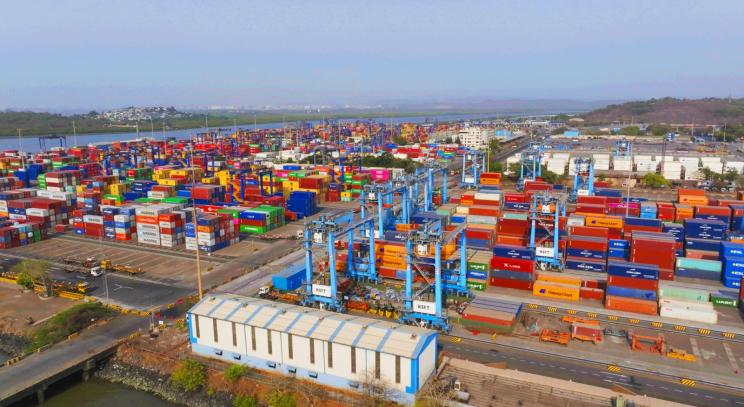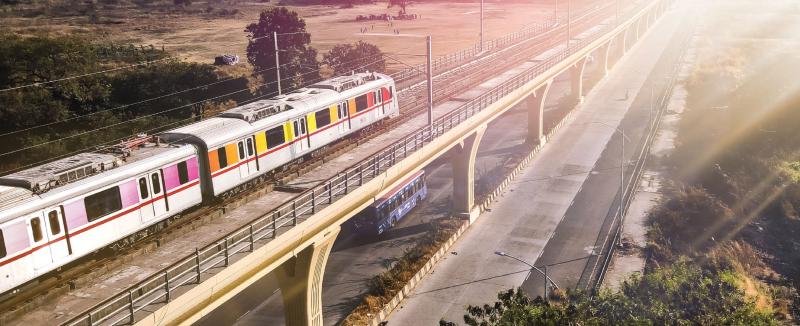In a bold and ambitious step toward modernisation, the government of Kuwait has announced a major infrastructure upgrade worth $2B aimed at transforming the country’s public transport system. The plan, which includes the development of modern bus networks, smart mobility systems, and sustainable infrastructure, is one of the largest investments Kuwait has made in its public transport sector.
This announcement marks a new era for the country as it seeks to improve the daily lives of residents, reduce traffic congestion, and promote environmentally friendly transport options. For years, Kuwait has relied heavily on private vehicles, but this new plan is expected to shift the focus toward reliable and efficient public transport.
A Modern Vision for a Growing Nation
The upgrade is part of Kuwait’s Vision 2035, a national development strategy that aims to transform the country into a regional leader in trade and transport. Officials from the Ministry of Public Works and the Ministry of Transportation stated that the $2 billion will go toward both new infrastructure and the improvement of existing systems.
New public bus stations, air-conditioned bus stops, digital ticketing systems, and eco-friendly buses will be introduced over the next few years. The goal is not only to improve efficiency but to make public transport more appealing to all segments of society.
“This plan is not just about buses and roads—it’s about improving the quality of life for all Kuwaitis,” said one senior transport official during the press briefing. “We want to offer a safer, faster, and greener way to move around the city.”
Smart Solutions for Everyday Commutes

The plan includes integrating advanced technologies such as GPS tracking for buses, mobile applications for real-time scheduling, and AI-powered traffic management systems. These smart solutions are expected to help reduce travel times and make commuting more predictable for passengers.
One of the biggest problems commuters face in Kuwait is long delays due to traffic congestion. With the help of smart traffic systems and dedicated bus lanes, this issue could soon be a thing of the past. The government hopes that better reliability and comfort will encourage more people to leave their cars at home.
The new infrastructure will also include better connections between residential areas, schools, business districts, and industrial zones. This change is especially important for working-class communities and students who rely on affordable transportation.
Supporting a Greener Environment
Environmental impact is a major part of this project. With Kuwait’s rising fuel consumption and increasing carbon emissions, authorities are aiming to introduce low-emission or electric buses as part of the new fleet.
Solar-powered shelters and eco-friendly materials will be used in the construction of new facilities. This is a move in line with global trends and Kuwait’s commitment to sustainable development. If successful, the plan will reduce pollution, lower fuel costs, and help the country meet its environmental goals.
Experts say that encouraging public transport use is one of the most effective ways to reduce a country’s carbon footprint. This shift is also expected to inspire more investments in green technologies and clean energy in the region.
Creating Jobs and Stimulating the Economy
Aside from improving transport, the $2B investment is also expected to create thousands of jobs. From construction workers to software developers, the wide scope of the project will open doors for skilled and unskilled labor alike.
Local businesses are also likely to benefit, especially those in construction, technology, and maintenance. By boosting infrastructure, the government is helping to strengthen the economy and support local industries.
“This is not just a public transport plan. It’s a job creation plan. It’s a development plan. And it’s a step forward for Kuwait’s future,” said an economic analyst familiar with the project.
Challenges Ahead, but Optimism Remains High
While the plan has been praised by many, experts caution that proper implementation will be key. Kuwait has faced delays in previous infrastructure projects due to bureaucracy, funding issues, and logistical challenges.

However, with strong leadership and international partnerships, officials are hopeful that the current plan will stay on track. International consultants and regional experts are already being brought in to ensure that the latest technologies and best practices are used.
Citizens are also encouraged to participate by giving feedback and suggestions during the early phases of the project. Public awareness campaigns will be launched to educate people about the benefits of public transport and how to use the new systems.
What This Means for Kuwait’s Future
This $2 billion upgrade is more than just a development project—it is a symbol of Kuwait’s readiness to grow, adapt, and lead. In the face of global urban challenges, Kuwait is taking bold steps to prepare for the future.
Whether it’s reducing the pressure on roads, cutting pollution, or helping people get to work faster, the impact of this project will be felt across the country. For a nation that has long depended on cars and oil, this is a major shift in direction.



